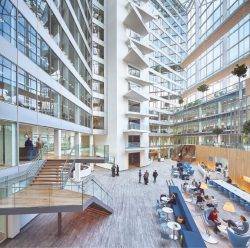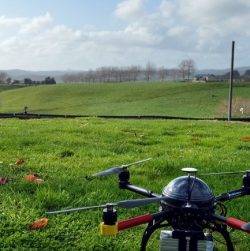To provide the best experiences, we use technologies like cookies to store and/or access device information. Consenting to these technologies will allow us to process data such as browsing behaviour or unique IDs on this site. Not consenting or withdrawing consent, may adversely affect certain features and functions.
The technical storage or access is strictly necessary for the legitimate purpose of enabling the use of a specific service explicitly requested by the subscriber or user, or for the sole purpose of carrying out the transmission of a communication over an electronic communications network.
The technical storage or access is necessary for the legitimate purpose of storing preferences that are not requested by the subscriber or user.
The technical storage or access that is used exclusively for statistical purposes.
The technical storage or access that is used exclusively for anonymous statistical purposes. Without a subpoena, voluntary compliance on the part of your Internet Service Provider, or additional records from a third party, information stored or retrieved for this purpose alone cannot usually be used to identify you.
The technical storage or access is required to create user profiles to send advertising, or to track the user on a website or across several websites for similar marketing purposes.
 Is lack of sleep affecting your work?
Is lack of sleep affecting your work?






 Over half of UK workers (53 percent) say that the standard of technology is a key consideration for accepting a new job role and more than 1 in 3 (37 percent) would decline a job based on poor hardware alone, claims a new survey. The survey of over 2,000 British adults carried out by gadgets and technology e-tailer, LaptopsDirect.co.uk found that having the latest technology was valued more than other office perks, such as flexible working (45 percent), the working environment/decor (39 percent) and staff discounts (33 percent). Nearly a quarter of respondents (74 percent) overall, believe technology makes them more productive at work, with workers in marketing valuing technology the highest, with 84 percent of the votes, followed by those in creative and photographic (81 percent), information and communications (78 percent), professional services (73 percent) and education (71 percent).
Over half of UK workers (53 percent) say that the standard of technology is a key consideration for accepting a new job role and more than 1 in 3 (37 percent) would decline a job based on poor hardware alone, claims a new survey. The survey of over 2,000 British adults carried out by gadgets and technology e-tailer, LaptopsDirect.co.uk found that having the latest technology was valued more than other office perks, such as flexible working (45 percent), the working environment/decor (39 percent) and staff discounts (33 percent). Nearly a quarter of respondents (74 percent) overall, believe technology makes them more productive at work, with workers in marketing valuing technology the highest, with 84 percent of the votes, followed by those in creative and photographic (81 percent), information and communications (78 percent), professional services (73 percent) and education (71 percent).
 The creative team behind the development of the world’s most sustainable building – The Edge in Amsterdam – has announced the launch of a real estate technology company. EDGE Technologies, launched by OVG Real Estate CEO Coen van Oostrom will focus on creating a new generation of buildings which feature the latest innovations in sustainability and wellbeing. Whereas parent company OVG is focussed exclusively on the development of its existing portfolio, EDGE Technologies will focus on both the development and the long-term operations of this new generation of buildings, aiming for a cohesive experience across cities. Each EDGE building will be built and operated on the same technology platform and offer consistent user-centred design, created to serve the needs of today’s fast-changing and demanding workforce. To help achieve this the new company is launching a product that will capture and aggregate data across its properties in order to optimize, measure and inform both the user experience and the building’s environmental performance.
The creative team behind the development of the world’s most sustainable building – The Edge in Amsterdam – has announced the launch of a real estate technology company. EDGE Technologies, launched by OVG Real Estate CEO Coen van Oostrom will focus on creating a new generation of buildings which feature the latest innovations in sustainability and wellbeing. Whereas parent company OVG is focussed exclusively on the development of its existing portfolio, EDGE Technologies will focus on both the development and the long-term operations of this new generation of buildings, aiming for a cohesive experience across cities. Each EDGE building will be built and operated on the same technology platform and offer consistent user-centred design, created to serve the needs of today’s fast-changing and demanding workforce. To help achieve this the new company is launching a product that will capture and aggregate data across its properties in order to optimize, measure and inform both the user experience and the building’s environmental performance. 
 If the Government is to deliver its plans of driving digital transformation to improve the UK’s public services it must make a step change in procurement within central government and the wider public sector. That is one of the main findings of
If the Government is to deliver its plans of driving digital transformation to improve the UK’s public services it must make a step change in procurement within central government and the wider public sector. That is one of the main findings of 






















January 30, 2018
Harnessing serendipity in the workplace is about more than facilitating the unexpected
by Ilkka Kakko • Comment, Technology, Workplace design
(more…)